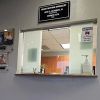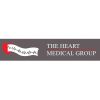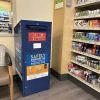Understanding Heart Disease
Heart disease encompasses a wide range of conditions that affect the heart’s ability to function properly. It is one of the leading causes of death globally, with risk factors such as high blood pressure, diabetes, and high cholesterol contributing significantly to its development. Understanding the different types of heart disease, from coronary artery disease to heart failure, is essential for individuals seeking to protect their heart health and live a long, healthy life. Cardiologists play a vital role in not only treating but also in educating patients about these risks and how to manage them effectively.
The Role of Cardiologists in Diagnosis
Cardiologists are specialized doctors trained to diagnose and treat heart conditions. Their expertise is critical in identifying early signs of heart disease, often before symptoms become severe. By conducting various tests like electrocardiograms (ECG), echocardiograms, and stress tests, cardiologists can assess heart function and identify issues like arrhythmias, blockages, and structural abnormalities. Early detection of heart disease is key to improving treatment outcomes and preventing more serious complications, such as heart attacks or stroke.
Treatment Options for Heart Disease
Once diagnosed with heart disease, patients are provided with a personalized treatment plan. Cardiologists work closely with patients to determine the best approach, which may include lifestyle changes, medications, or even surgical interventions. For example, in cases of blocked arteries, cardiologists may recommend procedures like angioplasty or stent placement. Medications such as blood thinners, cholesterol-lowering drugs, or beta-blockers are commonly prescribed to manage symptoms and prevent further damage to the heart. In some cases, more invasive procedures, such as bypass surgery, might be necessary to restore blood flow and heart function.
The Importance of Early Detection
Cardiologists stress the importance of early detection in the fight against heart disease. Through regular check-ups and screenings, patients can catch heart conditions early, potentially preventing serious complications down the line. For instance, monitoring cholesterol levels, blood pressure, and heart rate regularly can help identify warning signs of cardiovascular issues. Early intervention may include lifestyle adjustments like a heart-healthy diet, exercise, and stress management techniques, all of which contribute to reducing the risk of heart disease progression.
Success Stories of Cardiologists' Impact
One inspiring example of a cardiologist’s impact is the story of John, a 55-year-old man who suffered a heart attack due to undiagnosed high cholesterol. After seeking help from a cardiologist, he underwent diagnostic tests and was immediately put on medication and a tailored fitness plan. Through the guidance of his cardiologist, John was able to make significant lifestyle changes, lowering his cholesterol and preventing future heart attacks. This case highlights the essential role that cardiologists play in guiding patients through both prevention and recovery, ultimately saving lives.
How to Find the Right Cardiologist
Finding the right cardiologist is crucial to ensuring proper diagnosis and treatment. When seeking a cardiologist, consider factors such as their experience, specialization, and patient reviews. It’s important to find a cardiologist who listens to your concerns and develops a treatment plan tailored to your specific needs. Look for a professional who values both prevention and treatment, and who works collaboratively with you to achieve optimal heart health. Additionally, your primary care doctor can provide valuable recommendations based on their knowledge of your health history.
Conclusion: Empowering Patients Through Expertise
The role of cardiologists in treating heart disease cannot be overstated. Their specialized knowledge and expertise are essential for diagnosing, treating, and preventing heart disease, ultimately helping patients live healthier, longer lives. Whether through lifestyle changes, medication, or surgery, cardiologists provide life-saving interventions. If you or someone you know is experiencing heart health concerns, don’t hesitate to consult a qualified cardiologist. Take control of your heart health today and consult a professional who can guide you toward a healthier tomorrow.




















